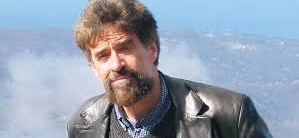Once upon a time the Medieval Celtic World was synonymous with the Dark Ages.
That perspective began to be challenged, and was eventually modified, with a series of books with titles that made grandiose claims championing Celtic achievement in all its manifold forms.
The Celtic stone got rolling at a rapid clip in 1995 with How the Irish Saved Civilization. Subtitled The Untold Story of Ireland’s Heroic Role from the Fall of Rome to the Rise of Medieval Europe, Thomas Cahill’s book became an international bestseller.
It wasn’t long before large claims were made for Scottish contributions to the intellectual world order including two books published in 2001. How the Scots Invented the Modern World: The True Story of How Western Europe’s Poorest Nation Created Our World & Everything in It was written by American historian Arthur Herman. When Scotland Ruled the World: The Story of the Golden Age of Genius, Creativity and Exploration was written by Scottish journalist/author Stewart Lamont.
Eventually Canadian writers got bitten by the Celtic hyperbole bug including a pair of volumes by Ken McGoogan, the book review editor at the Calgary Herald for two decades until a bitter strike compelled him to abandon the newspaper biz in 1999.
Journalism’s loss proved non-fiction’s gain. The Toronto-based writer has penned a number of enjoyably readable popular histories including Canada’s Undeclared War, Fatal Passage, Ancient Mariner, Lady Franklin’s Revenge, Race to the Polar Sea and 50 Canadians Who Changed the World.
McGoogan’s remaining work of non-fiction, How the Scots Invented Canada, is especially noteworthy as the predecessor and companion to Celtic Lightning. Published in 2010, the earlier book is the more direct and straightforward undertaking. Most of the 60 nation builders of Scottish ancestry either immigrated to what became Canada or were born and raised here.
He casts a wide net with succinctly written thumbnail biographies. Whether familiar or lesser known, the figures come from all walks of life, spanning exploration, politics, education, commerce, finance, religion, invention, medicine, military service and the arts, especially literature.
The figures represent an impressive range of achievement that has defined the country from the earliest days of exploration and settlement to the present — from Simon Fraser, Lord Selkirk, John A. MacDonald, George Brown, Willian Lyon Mackenzie King, Timothy Eaton and Alexander Graham Bell to Tommy Douglas, Pierre Elliott Trudeau, Alistair MacLeod, Alice Munro, Farley Mowat and Marshall McLuhan.
McGoogan anticipates his latest celebration of transnational Celtic influence by including two monumental Scottish writers — the poet Robbie Burns and the novelist Sir Walter Scott — in his pantheon of nation builders, even though neither set foot on Canadian soil.
He takes a more impressionist and intuitive approach with Celtic Lightning, published by HarperCollins and subtitled How the Scots and the Irish Created a Canadian Nation. As a result, readers of Celtic ancestry are likely more inclined to agree with the author than readers who do not have Celtic heritage bred in the bone.
Citing the 2011 Canadian census, he reports that 4.7 million citizens claim Scottish ancestry (14.3 per cent), with an additional 4.5 million claiming Irish ancestry. When combined, they account for the largest minority of Canadians (28 per cent). This demographic leads McGoogan to propose that we should examine the great figures of Scottish and Irish history to determine how they ‘shaped the values on which we have built a Canadian nation.’
McGoogan’s approach to cultural genealogy and transmission is based on the work of British ethologist and evolutionary biologist Richard Dawkins. He contends that the Scottish and Irish immigrants to Canada brought with them inherited social values and cultural attitudes — a cultural genetic code — that subsequently shaped their adopted country.
Further, he identifies five values that reflect a Celtic worldview including independence, democracy, pluralism, audacity and perseverance. Not only are these values evident in contemporary Canada, they can be traced back to 30 prominent figures who played formative or seminal roles in the histories of Scotland and Ireland.
As with the previous book, writers are well represented, including the aforementioned Burns and Scott, in addition to W. B. Yeats, Oscar Wilde, James Boswell, James Joyce and Robert Louis Stevenson. The only musicians to make either volume is the great pan-Celtic band The Chieftains.
McGoogan engages in some imaginatively fanciful speculation, as when he connects the Anglo-Irish satirist, humanitarian, egalitarian and Anglican dean Jonathan Swift to Mordecai Richler, a Jewish writer born and raised in Montreal.
In contrast to the earlier study, most of the figures portrayed in thumbnail biographies in Celtic Lightning never visited Canada. In hindsight it might have been preferable for McGoogan to confine How the Scots Invented to Canada to figures who immigrated or were born here and to confine Celtic Lightning to figures who remained in their respective countries of birth. This would have made for a clearer distinction and reduced overlapping and redundancy. It doesn’t strengthen his argument to include Canadian Confederation fathers John A. Macdonald and Thomas D’Arcy McGee with the likes of William Wallace and Robert the Bruce or Michael Collins and Charles Stewart Parnell.
Nonetheless, I highly recommend the companion volumes How the Scots Invented Canada and Celtic Lightning. Both books are deeply personal and involve the author and his wife Sheena making multiple trips to Ireland and Scotland, not to mention across Canada, in search of their shared Celtic heritage.
You don’t need a Celtic heart to enjoy books that pulsate with enthusiasm, energy and passion, while offering a new perspective on Canada’s ongoing national preoccupation with identity.
Readers interested in how Canadians view Ireland and Scotland should check out Stephen Scobie’s Taking the Gate: A Journey Through Scotland and David McFadden’s companion volumes An Innocent in Ireland: Curious Rambles and Singular Encounters and An Innocent in Scotland: More Curious Rambles and Singular Encounters.




